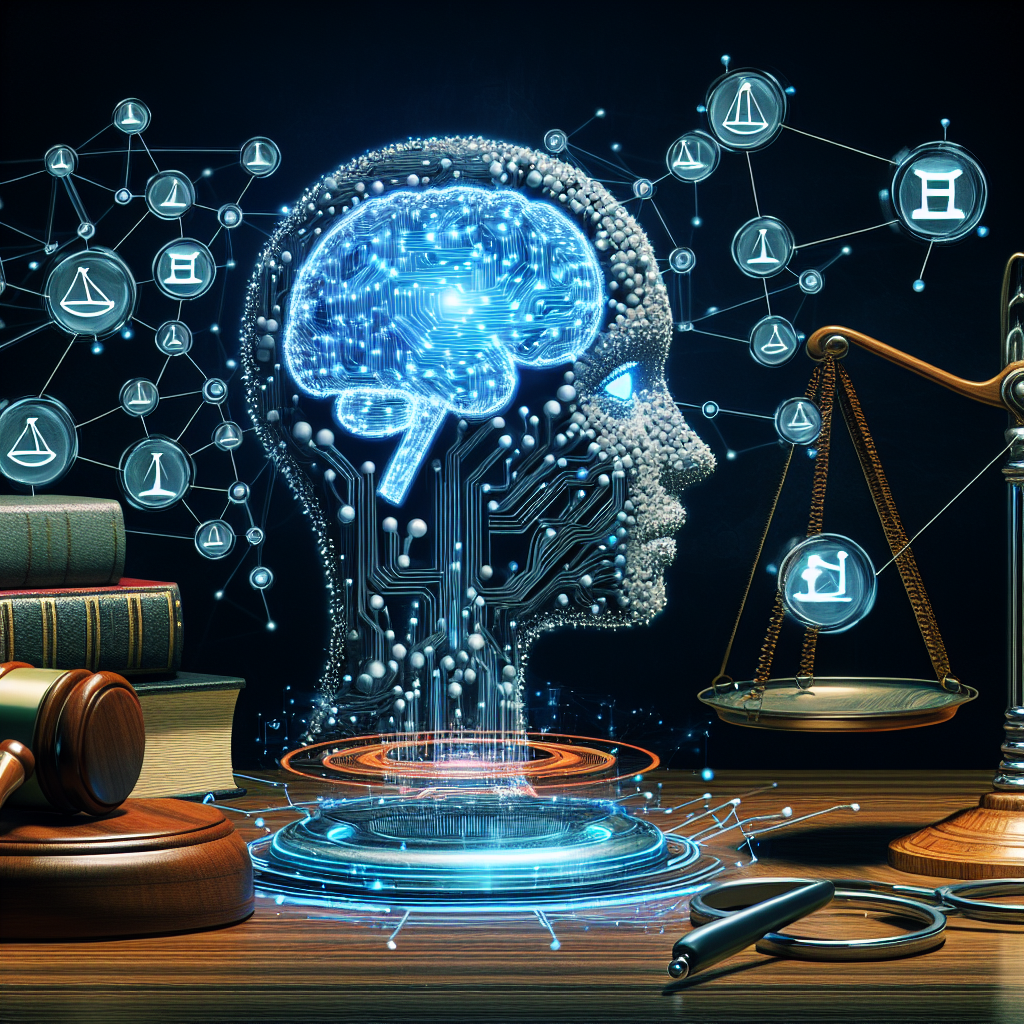Artificial Intelligence (AI) has made significant advancements in various industries, including the legal field. AI technologies are being increasingly utilized by law firms, legal departments, and legal professionals to streamline their processes, increase efficiency, and enhance decision-making. In this article, we will explore the use of AI in legal practice through a case study and provide a comprehensive overview of the benefits and challenges associated with this technology.
Case Study: Using AI in Legal Practice
One of the most prominent examples of AI in legal practice is the use of AI-powered contract review and analysis tools. These tools leverage natural language processing (NLP) and machine learning algorithms to analyze and extract key information from legal documents, such as contracts, agreements, and court filings.
A leading law firm, XYZ Law, recently adopted an AI-powered contract review tool to streamline their contract review process. The firm was facing challenges with manual contract review, which was time-consuming, error-prone, and required significant resources. By implementing the AI tool, the firm was able to automate the contract review process, saving time and resources while improving accuracy and efficiency.
The AI tool was trained on a vast amount of legal documents and was able to quickly analyze and extract key clauses, terms, and provisions from contracts. This enabled the legal team at XYZ Law to review contracts more efficiently, identify potential risks and issues, and make informed decisions based on the extracted information.
Furthermore, the AI tool also provided insights and recommendations based on previous cases and legal precedents, helping the legal team to draft better contracts and negotiate more favorable terms for their clients. Overall, the use of AI in contract review has transformed the way XYZ Law handles legal documents, leading to improved productivity, reduced costs, and enhanced client satisfaction.
Benefits of AI in Legal Practice
The use of AI in legal practice offers numerous benefits, including:
1. Increased Efficiency: AI technologies can automate repetitive tasks, such as document review, legal research, and case analysis, allowing legal professionals to focus on higher-value tasks and strategic decision-making.
2. Improved Accuracy: AI-powered tools can analyze vast amounts of data quickly and accurately, reducing the risk of human error and providing more reliable results.
3. Enhanced Decision-making: AI can provide valuable insights and recommendations based on data analysis, enabling legal professionals to make more informed decisions and achieve better outcomes for their clients.
4. Cost Savings: By automating routine tasks and increasing efficiency, AI can help law firms and legal departments reduce operational costs and improve profitability.
Challenges of AI in Legal Practice
While the benefits of AI in legal practice are significant, there are also challenges associated with the adoption of AI technologies:
1. Data Privacy and Security: AI tools require access to sensitive and confidential data, raising concerns about data privacy and security. It is essential for law firms to implement robust data protection measures to safeguard client information.
2. Ethical Considerations: The use of AI in legal practice raises ethical questions, such as the responsibility of legal professionals when relying on AI-generated recommendations and the potential bias in AI algorithms.
3. Training and Adoption: Implementing AI technologies requires training and upskilling of legal professionals to effectively utilize these tools. Resistance to change and lack of technical expertise can hinder the adoption of AI in legal practice.
4. Regulatory Compliance: Legal professionals must ensure that AI technologies comply with regulatory requirements and ethical standards, such as data protection laws and professional conduct rules.
FAQs about AI in Legal Practice
Q: How can AI help with legal research?
A: AI-powered tools can analyze vast amounts of legal data and provide relevant case law, statutes, and precedents to support legal research and decision-making.
Q: Can AI replace human lawyers?
A: AI technologies can automate routine tasks and provide valuable insights, but human lawyers are still needed for complex legal analysis, strategic decision-making, and client interaction.
Q: Are AI tools secure for handling confidential legal data?
A: Law firms must implement robust data protection measures to ensure the security and confidentiality of client information when using AI tools.
Q: How can law firms benefit from AI in contract review?
A: AI-powered contract review tools can automate the review process, identify potential risks, extract key information, and provide insights to help law firms draft better contracts and negotiate favorable terms for their clients.
Q: What are the ethical considerations of using AI in legal practice?
A: Legal professionals must consider ethical issues, such as the responsibility of relying on AI-generated recommendations, the potential bias in AI algorithms, and ensuring transparency and accountability in AI use.
In conclusion, the adoption of AI in legal practice offers significant opportunities for law firms, legal departments, and legal professionals to enhance their processes, improve efficiency, and deliver better outcomes for their clients. While there are challenges associated with the use of AI technologies, such as data privacy, ethical considerations, and regulatory compliance, the benefits of AI in legal practice far outweigh the risks. By embracing AI and leveraging its capabilities, law firms can stay competitive, drive innovation, and provide value-added services to their clients in the rapidly evolving legal landscape.

